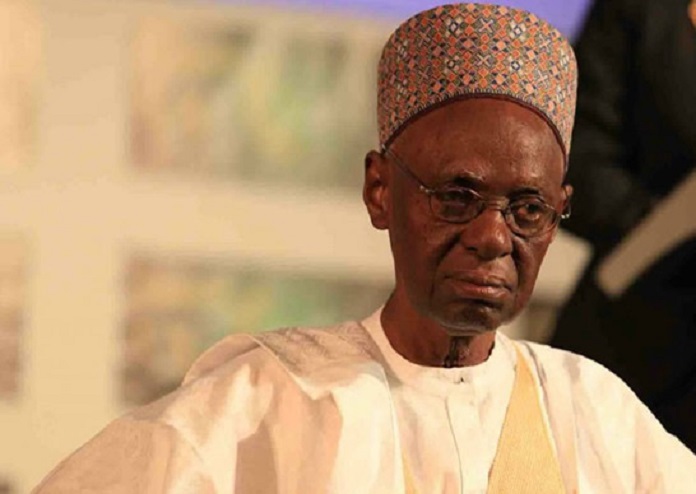The first executive president of Nigeria was Alhaji Shehu Shagari. His presidential term lasted from October 1979 to December 1983.
Shagari, an experienced politician, was known to have occupied several political positions in Nigeria, including seven ministerial / cabinet posts. He later became the first and only President of Nigeria’s Second Republic, after the handover of power by General Olusegun Obasanjo’s military government.
How Shehu Shagari Became the First Executive President of Nigeria
Shehu Usman Aliyu Shagari, who was an indigene of Sokoto State, NorthWest Nigeria, and a devout Sunni Muslim, assumed office after a Presidential election that was conducted on the 11th of August 1979.
The general election saw Shagari of the National Party of Nigeria (NPN) contesting for the presidential seat against four other candidates – Dr. Nnamdi Azikiwe of the Nigerian People’s Party (NPP), Alhaji Ibrahim Waziri of the Great Nigeria People’s Party (GNPP), Alhaji Aminu Kano of the People’s Redemption Party (PRP), and Chief Obafemi Awolowo of the Unity Party of Nigeria (UPP).
Shagari narrowly defeated Obafemi Awolowo as he reportedly satisfied the provision of Section 34A(1)(c)(ii) of the Electoral Decree of 1977. Though amid heated court cases mostly filed by Chief Awolowo, who challenged his declaration as president, Shagari took over power from the military government led by Olusegun Obasanjo, allowing a return to civilian rule. Alexander Ifeanyichukwu Ekwueme, his running mate, then became the first elected Vice President of Nigeria.
Shagari’s Presidency Faced Dramatic Economic Challenges
Shehu Shagari’s emergence as Nigerian President during the Second Nigerian Republic was welcomed by Nigerians at home and abroad. It was a period of hope, and therefore, the shortcomings of the elections were overlooked.
Shagari’s reputation among Nigerians was that he was honest and mild, a gentleman of the old school. The Second Republic operated under a new constitution, which replaced the Westminster system of government with a presidential system broadly modeled on that of the United States.
However, his presidency was marked by a dramatic fall in international oil prices which had a devastating impact on Nigeria’s economy. To combat the situation, his government attempted various economic strategies, including expelling foreigners who had come to Nigeria during the days of the oil boom. An estimated two million people, mostly Ghanaians, were literally sent home in what, at the time, was one of the larger movements of African peoples.
The fall in oil prices ignited an orgy of corruption among the country’s elite, which Shehu Shagari appeared unable to control. There was also a revolt, based in Kano, by a radical, Islamist millenarian cult, the Maitatsine, which is sometimes compared to Boko Haram. It was finally put down by the army in a bloody confrontation.
Shagari tried to accelerate the construction of a new federal capital, Abuja, to promote the unity of the country. He also made Agriculture, Industry, Housing, and Transportation the major economic goals of his administration. A notable strategy was his “Green Revolution,” which focused on distributing seeds and fertilizer to farmers to increase nationwide productivity in farming.
Amid all his transformation strategies, corruption in his administration worsened. Regardless, he was elected to a second term in elections that were more blatantly rigged than those of 1979. However, his government was overthrown by General Muhammadu Buhari in a military coup on 31 December 1983.
Did Shehu Shagari Complete his Tenure as the first Executive President of Nigeria?
Shagari successfully completed his first tenure as the first president of Nigeria and he was re-elected for a second term in office on 6 August 1983. However, his tenure came to a sudden end as he was overthrown and arrested by General Muhammadu Buhari in a military coup on 31 December 1983.
Shagari was placed under house arrest by General Muhammadu Buhari’s government. However, he was ultimately cleared of any wrongdoing and was eventually released from house arrest, and Shagari came to be regarded as an elder statesman.
At about 6:30 pm on 28 December 2018, Shehu Shagari died from a brief illness. Before his death, Shagari was admitted to the National Hospital, Abuja, where he was undergoing treatment before his death.

